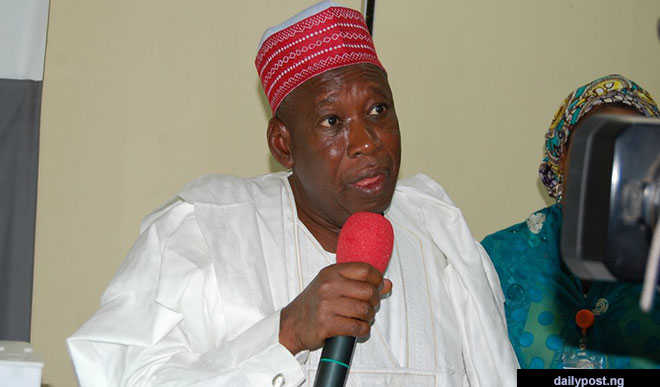Kano launches new empowerment programme
Kano State government in collaboration with Department for International Development (DFID) has launched another empowerment programme named Mafita with 2, 445 apprentices including physically challenged persons and Almajirai. The programme is aimed at training disadvantaged youth and women in various skills that comprised leather works, auto mechanic, tailoring, interior decoration and other crafts. Speaking at […]


Kano State government in collaboration with Department for International Development (DFID) has launched another empowerment programme named Mafita with 2, 445 apprentices including physically challenged persons and Almajirai.
The programme is aimed at training disadvantaged youth and women in various skills that comprised leather works, auto mechanic, tailoring, interior decoration and other crafts.
Speaking at the official flag-off of the programme, the state commissioner of Budget and Planning, Hajiya Zubaida Damakka Abubakar, said Kano state government had selected Rumfa College and Dawakin Tofa vocational training centers as the designated centers for the programme.
She said so far 2, 445 apprentices, 600 master craftsmen and 25 cluster champions had been selected for the commencement of the programme.
The state Commissioner of Information and Chairman of the State Empowerment Programmes, Mallam Muhammad Garba said so far Kano state government had trained over 20, 000 youth and women since inception on May 29, 2015.
He said: “Mafita programme is currently being run in Kano, Kaduna and Katsina states. I want assure our partner that Kano state government will give all necessary support needed to make this programme a success.”
In his speech, the Secretary to the Kano State Government, Alhaji Usman Alhaji, who represented the state governor at the occasion, lamented that over 70 per cent of the industrial establishment in the state were affected by the federal government’s bad policies.
“This development is greatly affecting the economy of the state. We have over 12 million youth below the age of 15-24 in the state and they are mostly unemployed. This prompted the Ganduje-led administration to search for alternative way of engaging them into one aspect of employment or the other.
